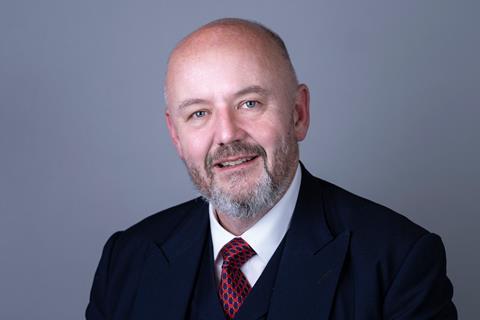Herbert Smith Freehills was caught in a ‘hopeless conflict’ over its continued involvement with the Post Office scandal compensation schemes, a lawyer for the victims has alleged.
Edward Henry KC, representing some of the postmasters affected by the Horizon IT scandal, told the public inquiry yesterday that victims continue to be offered less compensation than they are entitled to. He said that HSF had ‘aided, advised, assisted, dare I say abetted’ the Post Office in creating and managing those schemes despite its involvement in earlier stages of the saga.
In particular, Henry stated, HSF advised on a failed application by the Post Office in 2019 during litigation led by postmasters for the judge, Mr Justice Fraser, to recuse himself. A subsequent application for permission was refused, Fraser continued to hear the Horizon issues trial, effectively paving the way for the scandal to come to public attention and beginning the process leading up to this inquiry.
Henry said HSF was now in an ‘untenable position’ because of its history with the matter and that the firm was ‘deeply implicated’.
Henry said: ‘Here you have Herbert Smith advising on the recusal, advising the Post Office and witnesses in respect of this inquiry, in which the recusal application will be a seminal moment [in the next phase], and also supervising certain of the compensation schemes, one of them, them having to supervise it because the original hard bargain they drove, ruthlessly drove on behalf of their clients consistent with their duty to their client, was completely unfit for purpose.

‘It is a hopeless conflict but what concerns us particularly is that fact that unless you get at the truth then there can be no proper sum awarded in compensation.’
Henry said the compensation scheme as currently supervised by HSF ‘just will not do’ because the firm’s involvement with the recusal application was a ‘massively aggravating feature’.
Henry said a number of postmasters, who were wrongly accused of theft and fraud and left destitute after wrongful convictions, are being forced to settle for a ‘mess of pottage’ rather than what they are properly owed.
‘Some of my learned colleagues prefer not to have transparency in this matter,’ added Henry. ‘Everybody to their own. We can only respectfully submit that, in a case or a saga - and I don’t trivialise it by calling it that - involving so many secrets and discreditable manipulations behind the scenes, the lack of openness and the lack of transparency again gives rise to potential injustice.’
Kate Gallafent KC, representing the Post Office, said HSF had not advised on making the recusal application and it was only after Mr Justice Fraser had refused it that the firm was instructed. Sir Wyn Williams, the inquiry chair, said facts surrounding this episode would be investigated at a future hearing.
Phase four of the inquiry, which begins in June, will look at lawyers’ roles, including the conduct of civil and criminal proceedings and responsibility for failures in investigation and disclosure. The phase after that, scheduled to start in the autumn, will examine the conduct of the subsequent civil litigation.
The role of HSF in Post Office compensation schemes has previously been questioned in light of its role advising the Lloyds Banking Group to compensate victims of fraud on a scheme which was found to have serious shortcomings. The All-Party Parliamentary Group on Fair Business Banking said in 2021 that the firm’s involvement with the Post Office scheme was ‘perverse’. In 2022, the business, energy and industrial strategy committee said members were ‘concerned’ about HSF being involved in schemes to compensate more than 700 postmasters falsely accused.
The inquiry heard yesterday that another victim, Robert Boyle, had died before he could receive full compensation. There are now believed to be almost 30 claimants who fall into this category.
HSF has been approached for comment.






























